Tabs Open #20: These Savants Of Catastrophe
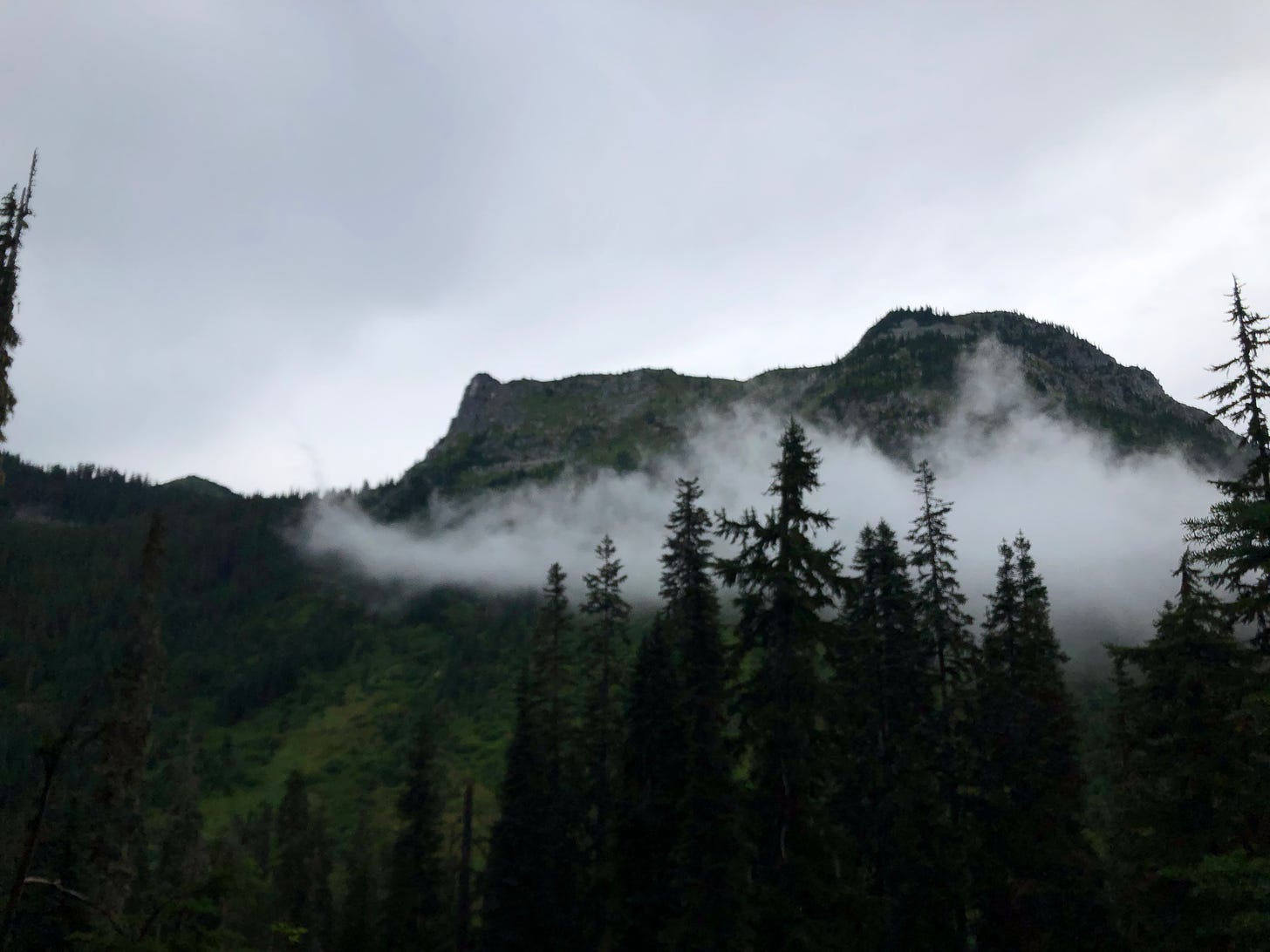
Over the weekend I had occasion to take a few days off from writing, something I try not to do these days. I wrote every day of 2016 and 2017 and tried rewarding myself with a month off to start 2018 which turned into more like seven. I recommitted to the discipline in 2019, one small bit of order imposed on an otherwise disorderly life; the weekend was my first break in the chain save for a hectic day of union organizing last month in which I plain old forgot.
It felt like a good time to take a break, though: my brothers were in town to visit for the first time in four years and I wanted to make the most of it. Which is not to say I wanted to fill every moment—just that I wanted the freedom to not do anything, which is something like the opposite. The idea made me panicky at first, to so intentionally break one of the few rules I’ve managed to keep for myself. Kinda sad.
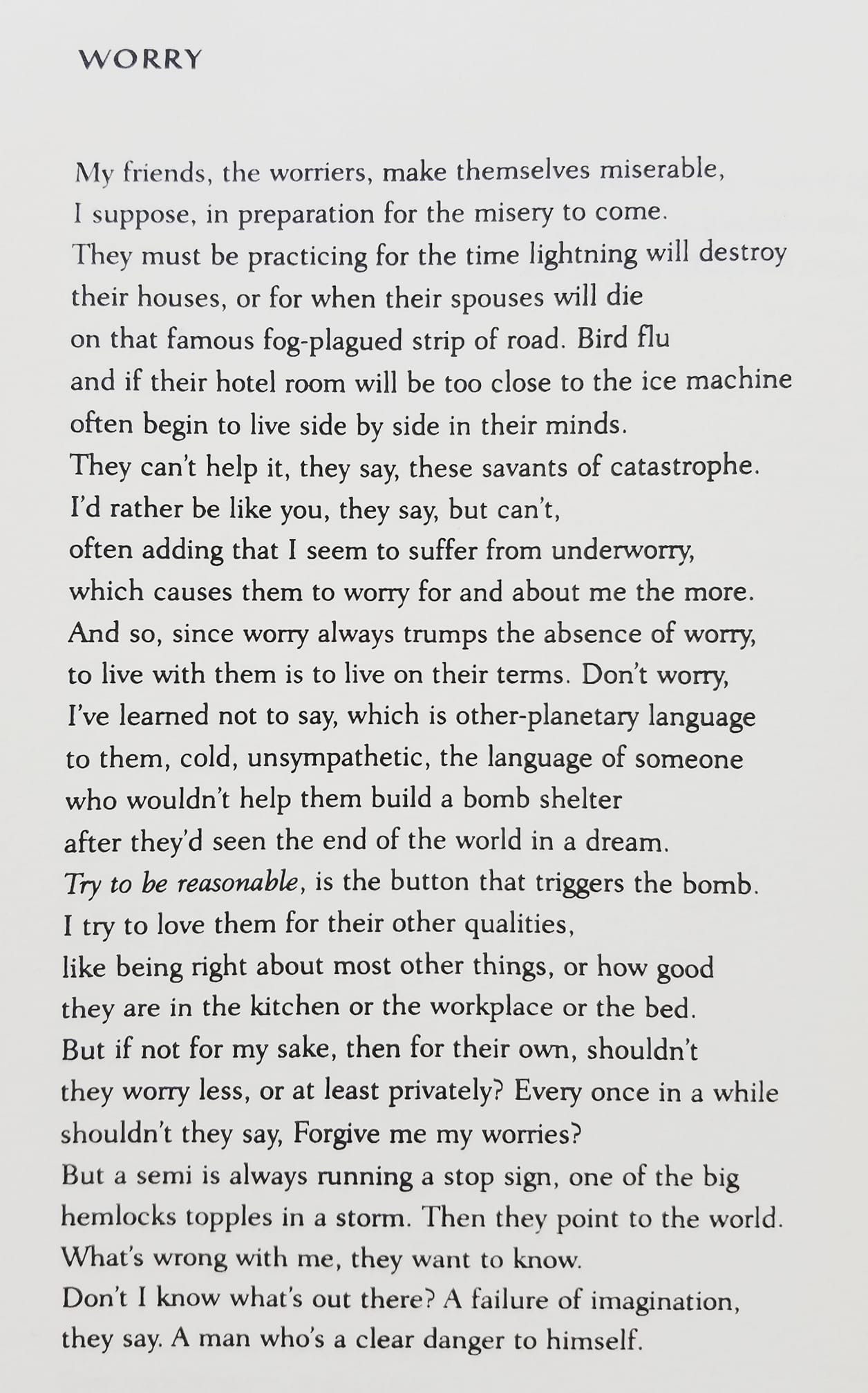
(Thanks to my pal Heather for posting this Stephen Dunn poem the other day. If we’re friends and you post poetry on social media there’s a good chance it’s made its way into my repository over the years.)
Damn, if I ain’t a worrier. I’m trying not to be, for reasons that poem can outline better than I can. It bears remembering: Now is the envy of all the dead. What better case exists for learning to let go a little bit, every so often?
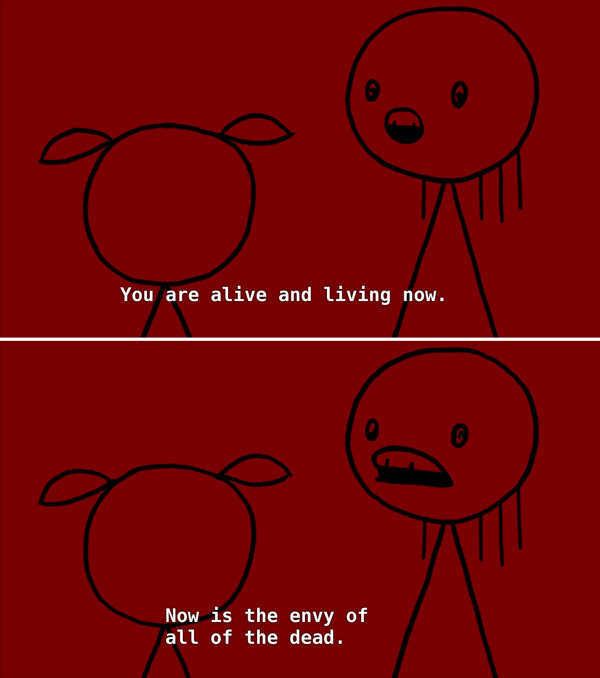
Of course the knowing and the doing are often far apart. But I am working on it and am curious to hear from other people what they do to bring the knowing and the doing a little closer together.
Hey speaking of the dead, it will come as no great surprise to hear that I spend quite a bit of time contemplating death and its many forms and mannerisms. Part of this is anxiety, plain and simple; in my better moments I like to think it takes on more of a Stoic characteristic. Either way, to me, remembering that now is the envy of all the dead and spending time thinking about the being dead are complementary practices.
Luckily for me and for all of us a lot of people have also dedicated quite a bit of time to wondering about the same journey and destination as we’re pondering here. One bit of wisdom, oft misattributed to Voltaire, reads as follows:
Life is a shipwreck, but we must not forget to sing in the lifeboats.
That’s pretty good, I think. Here’s a song for you to sing in the lifeboat.
There’s a kind of fatalist embrace in the lifeboat idea. That’s absent in this line we can pluck from Oscar Wilde to get a sense of what this all might mean, this great mystery of life and death, replaced by (shockingly) a twist that’s a bit more dramatic:
The suspense is terrible. I hope it will last.
This is of a piece with the viewpoint put forth by Tove Jansson, author of the Moomin series and something of a hero of mine. She writes:
All things are so very uncertain, and that’s exactly what makes me feel reassured.
Of course she was writing about the feeling one gets when looking at the aurora borealis and Wilde was writing about the question of who owned a handbag. But the conclusion is ultimately the same: it’s the not knowing that makes any of this worth it. By the time anyone knows they’re going to punch their ticket, it’s usually too late to do anything about or with that knowledge. Better to make the most of the great mystery while you can, then.
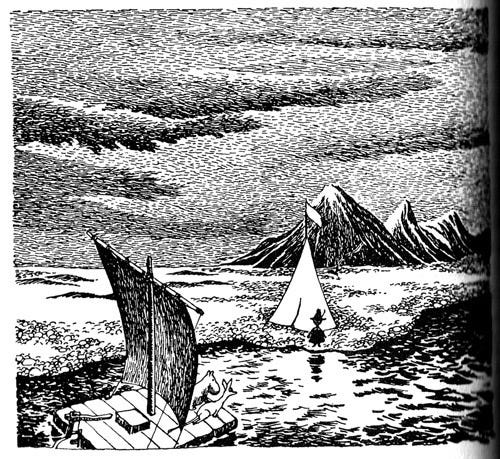
Perhaps the sunniest outlook on all of this—the greatest call not to Worry, the most emphatic endorsement of the value of the Now—comes to us from T.S. Eliot, who, toward the end of his “Little Gidding,” tells us that
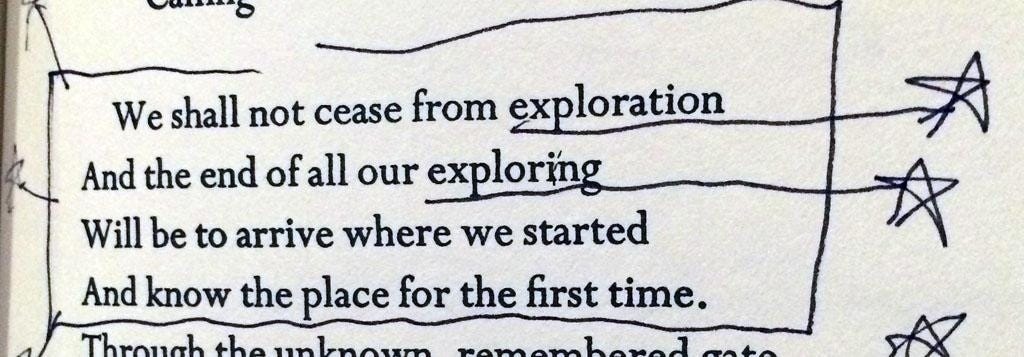
We’ll all find out what it means when we get there, and anyway, isn’t being dead a lot like not having been born yet? (With the exception of what you managed to do for the world and how people feel about you, I suppose. But it’s probably all the same to you.)
Anyway amidst the promise of dying there are two things to keep in mind. One:
And two:
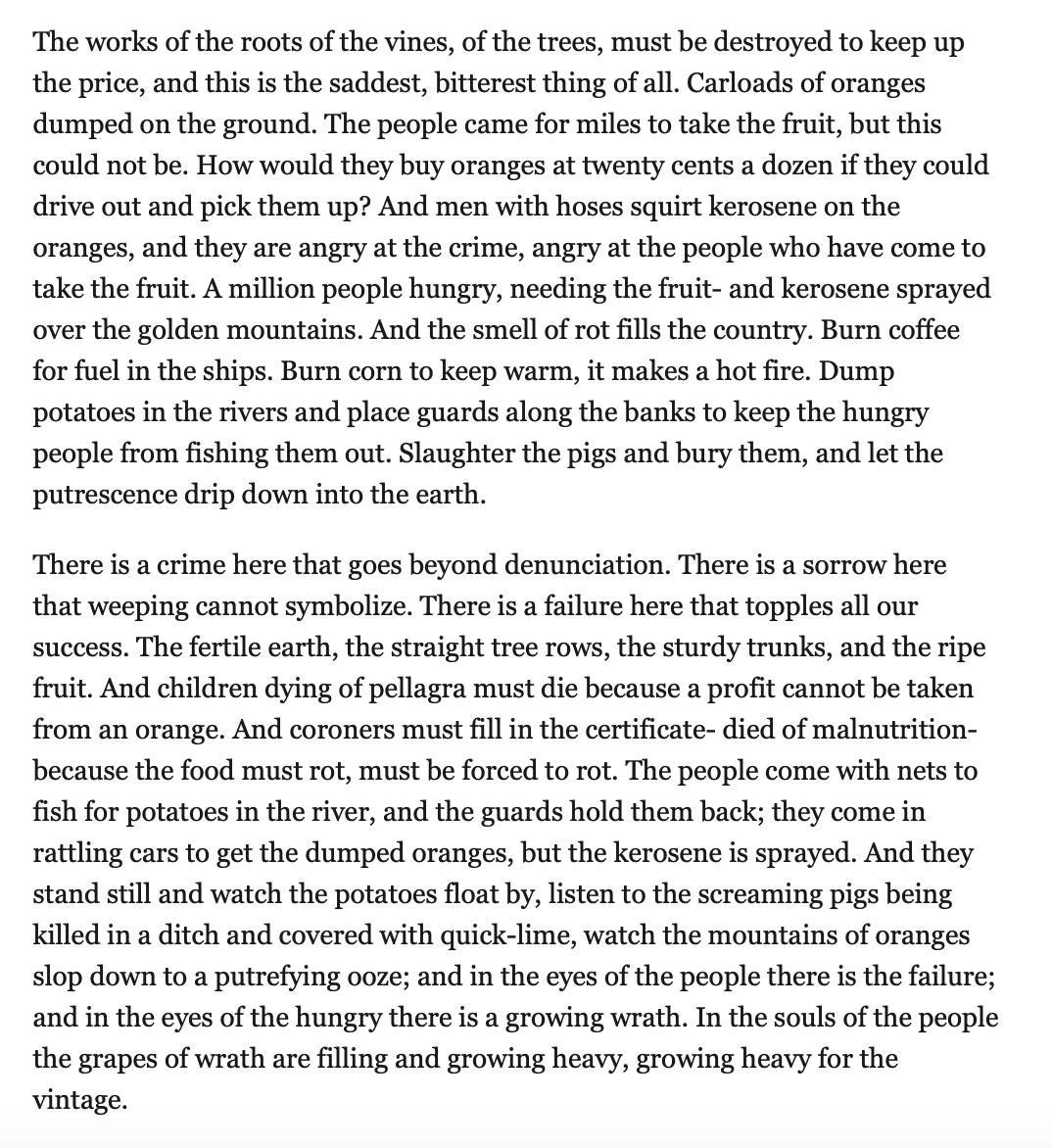
As far as anyone can be sure, we each only get one shot at all of this. And so to spend it fighting so that no one else’s shot ends in starvation on the roadside next to the rotting, unprofitable orange grove feels like the right direction to point.
Like 80% of the newsletter this week has just been the words of other people so I’ll end with a few that Philip Larkin strung together forty years ago:
we should be careful
Of each other, we should be kind
While there is still time.
See you next week.
-Chuck




